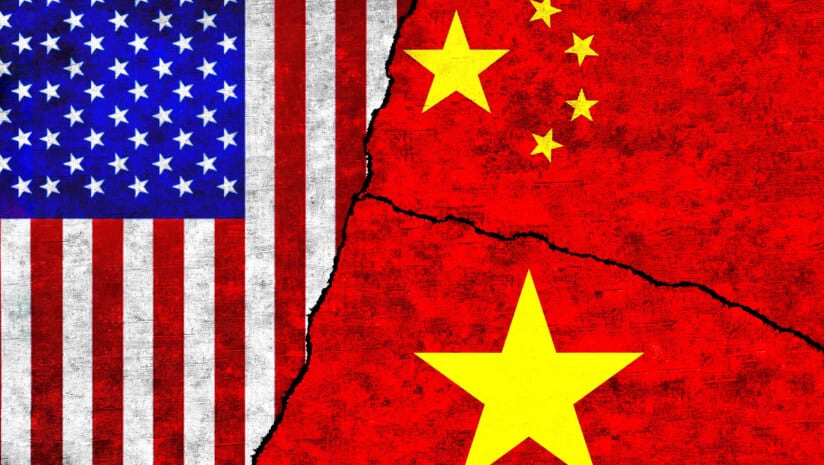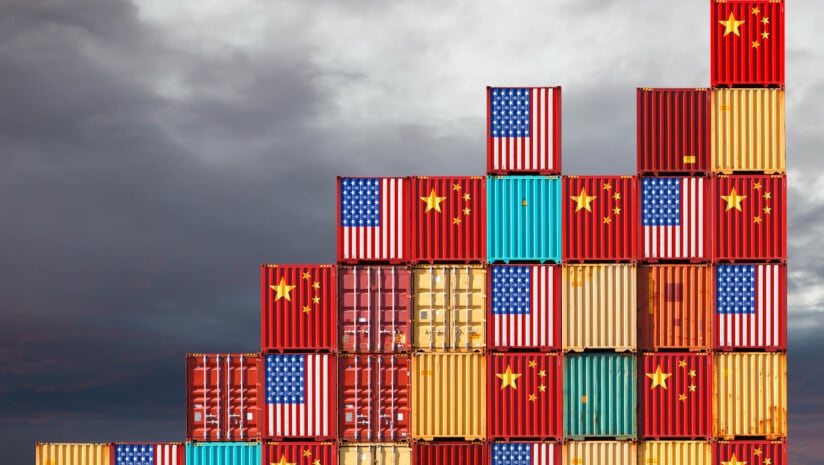As of this writing, Trump has paused implementation of the threatened tariffs against Canada and Mexico for 30 days. While it’s hard to know what economic future we’re planning for, it’s never been more important for the supplement industry and community to stand together, support one another and explain the truth about these looming tariffs to our legislators, our trade associations and our customers.
Especially as these immense and potentially disruptive decisions hang in the balance, our role as educators has never been more urgent. We’ve seen three myths about tariffs circulating in the chaos, and our industry needs to correct them loudly and clearly.
Myth #1: “Tariffs always boost domestic businesses and local goods.”
Truth: These tariffs are taxes that will punish businesses and consumers by increasing costs for all of us.
Let’s be clear: Tariffs are taxes, and that’s not our definition: The Council on Foreign Relations defines tariffs as “a form of tax applied on imports from other countries.” They are taxes levied on business owners, that in reality will most likely be passed on to the consumer.
Obviously, we need taxes to support a well-functioning society—but you don’t need an economics degree to understand that a sudden tax increase of 10% (the tariff increase proposed for Chinese goods) and 25% (the tariff increase proposed for Mexican and Canadian goods) will do great harm to trade while skyrocketing prices. There’s a reason why retailers, home builders, autoworkers, auto industry suppliers, the U.S. Chamber of Commerce and most leading economists have all urged the White House to reconsider this decision.
The pro-tariff argument says that tariffs will boost domestic brands by making imports more costly. In theory, mushroom products sourced in China would become far more expensive, and consumers would choose the brand made in America.
But that’s not going to happen, because of our second myth…
Myth #2: “Tariffs will force us to make these products domestically!”
Truth: Raw materials, supply chains and manufacturing hubs cannot be recreated overnight. Businesses will be forced to make hard decisions to delay expansions, lay off workers and raise prices.
Most people don’t understand the breadth of the manufacturing base in China for countless industries, including nutraceuticals. As Loren Israelson, founder and President of the United Natural Products Alliance (UNPA), pointed out, China is the dominant supplier of many critical nutrients materials, and has been for nearly two decades.
Just one example: virtually all of America’s antibiotics are made overseas. According to Marketwatch, the U.S. has “virtually no capacity to manufacture antibiotics.” The last U.S. penicillin plant closed in 2004. Imposing abrupt tariffs on medicine won’t magically create penicillin plants in the U.S., and the same goes for countless other medicines and health products.
As the leading supplier of organically certified mushroom extract powders, sourcing mushrooms cultivated in North America for an operation of our scale is impossible. Last year Nammex used more than 900 tons of dried organic mushrooms—more than the total output of the entire U.S. organic specialty mushroom market as reported by the USDA. Mushrooms are one of China’s top five agricultural crops, but they don’t even crack the U.S’s top thirty.
Beyond scale, China is the birthplace of mushroom cultivation, with traditions and practices more than 800-years-old and more mushroom scientists than in any other country. Over 90% of the world’s mushrooms are cultivated there (and that percentage is even higher when you exclude the button mushroom, which is the dominant mushroom crop for most countries.)
We cannot recreate that volume, expertise and infrastructure overnight in Canada or the United States, where the vast majority of locally cultivated mushrooms are used as food, not extracts, for dietary supplements or functional foods. Indeed, because it’s so expensive to grow these mushrooms domestically for supplements, U.S. companies have been cultivating mycelium-fermented grain and trying to sell it as “mushrooms” (a practice that’s had the mushroom industry up in arms for years).
How tariffs will really work in practice: When we import our extract powders from China into the United States, we are assessed duties (tariffs) which we pay to the U.S. government. If tariffs increase, we have to either eat those costs or pass them on to our customers by increasing prices. If we absorb the cost, we have less to spend on hiring and expansion. If we raise prices instead, the buyer has to pay more. So one way or another, the consumer ends up paying.
“Buy local” is a laudable goal—but in 2025, the vast majority of our goods cannot suddenly be made locally. They’ll simply end up outsourced to another country. We can and should change our systems to support more domestic manufacturing—but that will be a decades-long effort. So let’s be clear with our audiences that, instead of encouraging domestic gains, these tariffs will simply jack up costs for manufacturers and consumers. There are measures we can take to support and encourage local businesses and domestic manufacturing, but tariffs won’t get us there.
Myth #3: “Tariffs will strengthen national security and protect American interests!”
Truth: These tariffs will disrupt the economy while doing real damage to the American brand.
Conclusive research indicates that American households will be the ones who pay for these tariffs. Consumers want to support local business and domestic brands—and rightly so, but they simply cannot afford these increases in the price of basic goods. A cost-of-living crisis isn’t good for any nation’s security.
A tariff-spurred trade war won’t just impact the costs of supplements, groceries, medicines, cars, fuel and raw materials. It will impact investing, spending and hiring. A trade war’s downstream effects mean businesses will cut spending, companies will freeze hiring and investors will withhold funds, all to avoid the risks of an unpredictable market. A shrinking economy negatively impacts all of us.
These tariffs will not be paid by foreign governments but rather by the domestic purchasers: They will punish small businesses and everyday people who are already working with tight budgets. Research has found that these measures would result in billions in increased costs for American consumers, particularly lower-income households.
Another knock-on effect: a trade war damages the American brand. In a recent BBC article, 91% of Canadians said they want their country to rely less on the United States in the future. Mexico has already vowed retaliatory tariffs on U.S. imports. Retaliatory tariffs could trap us in a downward spiral of increasing costs—and for what? Even conservative Jay Nordlinger at The National Review was aghast at the folly of launching trade wars against the United States’s closest neighbors and biggest trading partners: “Canada and Mexico are not our enemies.”
The Consumer Healthcare Products Association (CHPA) issued a strong statement warning against the “unintended consequences from tariffs” and noting that “higher costs will disproportionately affect low-income households, further exacerbating health inequities.” Who, exactly, would the chaos and inflation of a trade war benefit?

How to Protect Our Businesses and our Customers
Business owners and industry members want to know what actions they can take in the meantime to mitigate the impact of these proposed tariffs. Here are our suggestions (we welcome yours as well—the more resources, the better).
- Evaluate every aspect of your production. We all took these measures during the pandemic, but now’s the time to examine your inventory, re-think supplier contracts and implement ways to secure your supply chain. It’s not a fix for a sudden crisis, but domestic supply chains absolutely need to become more robust, and this crisis just underscores the urgency of addressing that problem.
- Plan to provide more support to your own employees. Our staff will likely experience higher costs at the pump, grocery counter and big box stores. Many businesses, like ours, will do all they can to mitigate these new costs without passing them on to workers or customers, but that will require careful planning.
- Join and follow accredited trade organizations that are fighting on our behalf. The American Herbal Products Association (AHPA), the United Natural Products Alliance (UNPA), the Council for Responsible Nutrition (CRN), the Natural Products Association (NPA) and Consumer Healthcare Products Association (CHPA) are all doing strong advocacy work, education and lobbying.
- Share accurate information with your colleagues, communities, political representatives and followers about what these tariffs will really mean. Let people know that across virtually all industries, leaders and experts concur that tariffs are not the answer to our economic problems and will almost certainly make them worse. A trade war will impose punitive costs on businesses and consumers. We saw in 2020 how the ripple effect of our disrupted supply chain inflated prices that are still high today. Let’s do all we can to prevent another economic calamity before it begins.
Skye Chilton and Bill Chioffi are chief executive officer and chief operating officer at Nammex, a global leader in wholesale organic mushroom extract ingredients.




